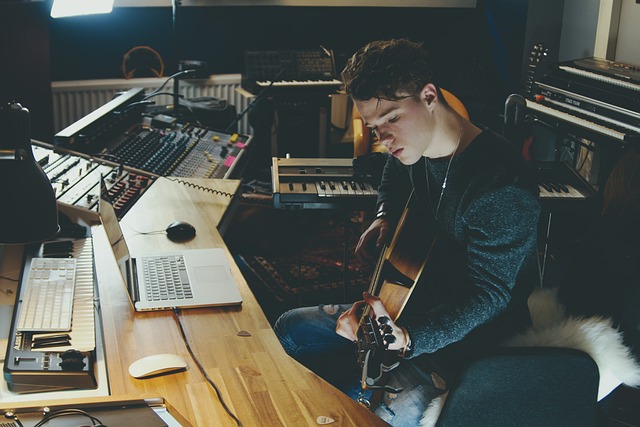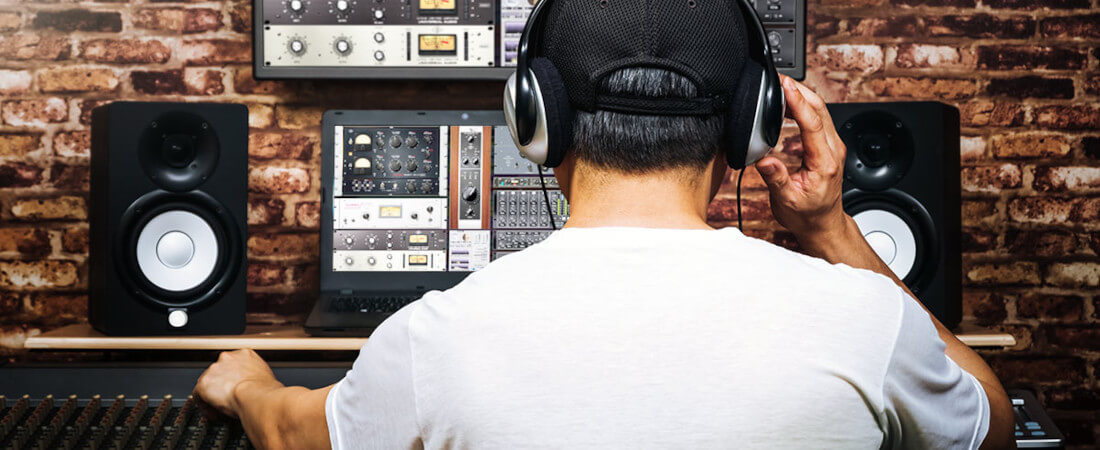SONGWRITING
Songwriting is the creative process of crafting lyrics and melodies to create a song. It involves the art of storytelling and self-expression through music. Songwriters draw inspiration from personal experiences, emotions, and observations of the world around them. They often use poetic devices such as metaphors, similes, and wordplay to enhance the lyrical content. The melody, rhythm, and harmonies of a song are carefully constructed to complement and enhance the lyrics, evoking specific moods and emotions. Ultimately, songwriting allows artists to communicate their thoughts, feelings, and messages to the listeners in a unique and captivating way.
Automation plays a crucial role in creating movement and dynamics within the mix. The mixer utilizes automation to adjust parameters over time, such as volume, panning, and effects, to enhance the musicality and emotion of the song. Fine-tuning and critical listening are performed to ensure the mix translates well on different playback systems.
What are the songwriting stages?
The songwriting process typically involves several essential stages.
- Inspiration and Idea Generation: This stage involves finding inspiration for the song. It can come from personal experiences, emotions, current events, or even random thoughts. Songwriters brainstorm ideas, concepts, and melodies that they want to explore further.
- Lyric Writing: Once the initial idea is formed, the songwriter starts crafting the lyrics. This involves writing down the words and developing the song’s story, message, or theme. Rhyme schemes, metaphors, and word choices are considered to create engaging and meaningful lyrics.
- Melody and Chord Progression: In this stage, the songwriter works on creating the melody and chord progression that will accompany the lyrics. They experiment with different musical patterns, melodies, and harmonies to find the right fit for the mood and message of the song.
- Arrangement and Structure: Once the lyrics and melody are established, songwriters focus on arranging the different sections of the song, such as verses, choruses, bridges, and possibly pre-choruses or interludes. They determine the order and repetition of these sections to create a cohesive structure.
- Refining and Editing: This stage involves revising and refining the song. Songwriters review and make changes to improve the lyrics, melody, chord progressions, and overall flow of the song. They may collaborate with other musicians or seek feedback from trusted sources to fine-tune the composition.
These stages are not necessarily linear and can overlap or be revisited multiple times during the songwriting process. Each songwriter may have their own unique approach, but these essential stages provide a framework for crafting a well-structured and compelling song. Without a good plan and good songwriting, the later mixing and production process will be more difficult, as there will be more problems to be fixed. For example, adding too many instruments with clashing frequencies at the same place will make mixing difficult for the mixing engineer.
Songwriting environment
The choice of environment for songwriting is subjective and can vary for different individuals. While a professional music studio can offer certain advantages, it may not necessarily be the best environment for every songwriter. Here are a few factors to consider:
-
Resources and Equipment: Professional studios often provide access to high-quality recording equipment, instruments, and production tools. This can be beneficial for songwriters who want to record demos or fully produce their songs with professional assistance.
-
Collaborative Opportunities: Studios can be ideal for collaborating with other musicians, producers, and engineers. The collaborative environment can spark creative ideas and lead to innovative songwriting approaches.
-
Sound Quality and Acoustics: Studios are designed to have excellent sound quality and acoustics, allowing for optimal recording and mixing conditions. This can be advantageous for songwriters who prioritize sonic quality and want to capture their ideas in a pristine audio environment.
-
Distractions and Comfort: On the other hand, some songwriters may prefer a more relaxed and familiar environment, such as their own home or a quiet space. They might find that the absence of external distractions allows them to focus better on their creative process.
-
Personal Preferences: Ultimately, songwriting is a deeply personal and individualistic endeavor. Some songwriters may thrive in a professional studio setting, while others may feel more inspired and comfortable in a different environment that suits their unique creative process.
It’s important to note that technology has made it increasingly accessible for songwriters to create music at home using software, home recording setups, and virtual collaboration tools. Many successful songs have been written in bedrooms, home studios, or even on the go. Ultimately, the best environment for songwriting is the one that allows the songwriter to feel inspired, creative, and able to bring their musical vision to life.
Frequently asked questions
Q: Do I need to learn to play an instrument for songwriting purposes?
A: Having access to an instrument can greatly enhance the songwriting process, but it is not a strict requirement. Instruments like guitars, pianos, or keyboards are commonly used to develop melodies, experiment with chord progressions, and establish the harmonic structure of a song. They also help in shaping the song’s structure, arrangement, and overall sound. Playing an instrument can inspire creativity, facilitate improvisation, and provide a tangible means of exploring different musical ideas. However, it’s important to note that songwriting can still be accomplished without instrumental accompaniment, with some songwriters relying solely on their voice, lyrics, or digital tools. The decision to use an instrument for songwriting ultimately depends on personal preference, musical style, and the resources available.
Q: Is there a specific formula when you start writing a song?
A: There is no universal formula to write songs. Some songwriters prefer to write the lyrics first, while others start with the music. There are songwriters who start building the songs from the drums, other prefer to create the chords and main melody.
The process of creating the song will depend on the genre and how you are used to start creating melodies and lyrics.
Blog Articles
Mixing In Key Or Harmornic Mixing
Mixing in key refers to the practice of aligning the musical elements in a mix to ensure they are harmonically compatible. It involves considering the key or musical...
Using a reference track to improve your mixes
» Setting a benchmark » Developing a better ear » Improving your techniques » Avoid common mistakes Mixing is a complex process that involves balancing the different...
Using a limiter or clipper in music mixing and production
WHEN AND HOW TO USE A LIMITER MIXING MUSICAudio mixing and production involve a range of techniques and tools to shape the sound of a track. One essential tool in this...
Extras
Blog
Other News
Contact Page
About Us



